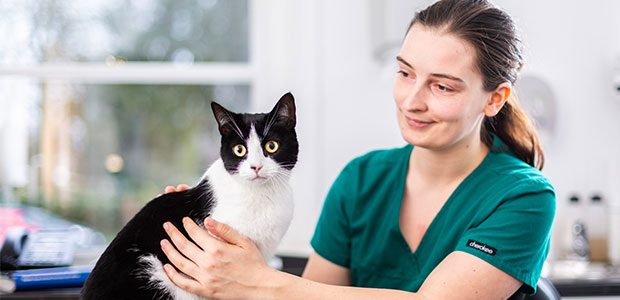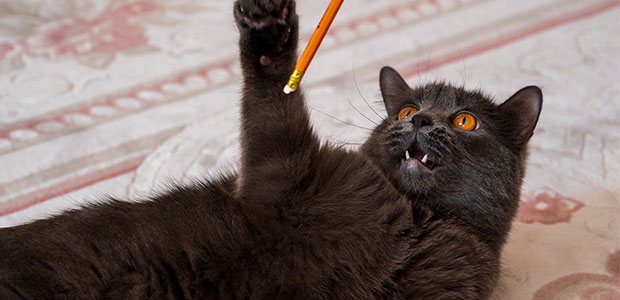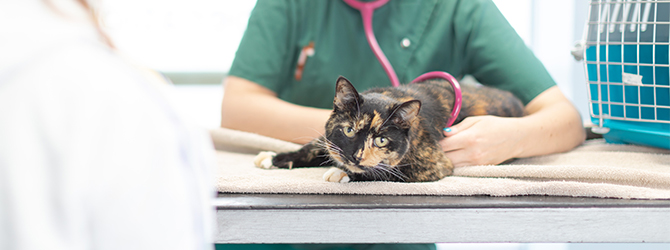Caring for elderly cats & cats reaching their senior years
Did you know cats are classed as ‘senior’ once they reach 11 years of age?
Just like humans, once a cat reaches their mature years, their bodies become more prone to a number of health conditions.
As their owner, it’s important to know the signs of possible health conditions, and also how to keep your cat healthy and comfortable as they begin their retirement.
Are senior cats more likely to become ill?
Sadly, a senior cat’s essential bodily functions, including the immune system, don’t work as effectively as their younger counterparts. This is just a side effect of old age! Geriatric cats may be at a higher risk of developing:
- Arthritis
- Cancer
- Diabetes
- High blood pressure (hypertension)
- Kidney disease
- Constipation
- Loss of sight and/or hearing
- Cognitive dysfunction
- Dental disease
- Hyperthyroidism
The chances may be higher but just because your cat has reached their senior years, they’re by no means guaranteed to develop a serious health condition. With appropriate preventative care, your cat can stay in optimum health for a while yet!
Read more: Advice for caring for older pets
When to contact my vet?
Cats are good at hiding their illnesses, but the following behaviour may be a sign that something’s not quite right:
- Your cat sleeps more
- They hide away more often than usual
- Weight gain or weight loss
- Your cat is slower when moving around
- Changes to their toilet routine i.e. increased/decreased toileting
- Changes to their appetite
- Imbalance, disorientation or distress
- Lumps and bumps on the skin

Read more: How to clip your cat's nails
Routine health checks are more important for older cats
If your cat is showing no symptoms and seems perfectly normal, you may be tempted to steer clear of the vets. This isn’t a great idea: on top of cats being very good at disguising health problems, several medical conditions are symptomless, especially during the early stages.
Now that your cat’s age is advancing, it’s more important than ever to attend six-monthly health checks with your vet. They’ll conduct a thorough ‘nose-to-tail’ exam, and will pick up on any underlying medical problems.
Remember the golden rule: the earlier a problem is spotted, the easier (and often cheaper) it is to treat!
How can I keep my elderly cat comfortable at home?
How can you keep your cat comfy and in good health during your day-to-day life? Here are some useful tips:
Provide a comfy bed - Plenty of padding will work to ease the pressure on your cat’s joints. Providing a few extra blankets will also make sure your cat stays nice and warm.
A high perch, complete with a step-stool and crash mat - Elderly cats are often more inclined to keep an eye on their surroundings. Adding a makeshift step stool, or rearranging things so your cat’s climb to their high perch isn’t too demanding, will allow them to continue their natural behaviour.
Grooming - If your cat is struggling to self-groom, why not give them a hand? It could prove to be a relaxing activity for you both!
Encourage your cat to eat and drink - Store food and water bowls somewhere easy to access, not too high and not too low. Also, try feeding your cat little and often to match their appetite, and avoid leaving uneaten food out in the open for too long.
Be there to provide attention - Older cats tend to be less independent and more aware of rival cats. You may find your cat seeks more of your attention than they used to.
Keep an eye on their claws - A less active cat’s claws are more likely to grow too long. Your vet or vet nurse can clip your cat’s nails for you if you don’t feel comfortable doing it at home.
Don’t forget about enrichment - Keeping your cat’s brain active is more important when they reach their mature years. Continue playing their favourite game - if they want to - or discover some new ways of keeping your cat entertained.

Read more: How to give tablets to cats
Why is my elderly cat urinating in the house?
Usually as a cat grows older, they become less fond of doing their business outside. This could be because they’re more sensitive to cold, harsh weather conditions, or they’re put off by neighbour cats who are out marking their territory.
To accommodate your cat’s new toilet habit, add a litter tray to your home, even if your cat is used to doing their business outside. Make sure there’s lots of room in the litter box for your cat to move around comfortably.
There are many types of litter on the market - aim for one that’s not too coarse and uncomfortable for your cat.
If you’re concerned about your cat’s toilet habits, read more about why they could be peeing outside their litter box, or have a chat with your local vet.
Adopting an older cat?
Many owners decide to adopt a senior cat instead of adopting a kitten. This is a great deed - providing an older cat with a loving home and improving their quality of life during their later years.
Adopting an adult cat can be very rewarding. Don’t be put off by the cat’s age and susceptibility to health conditions - with all the right preventative treatments and a good insurance policy, you’ll be just fine.
Read more: What to expect when you adopt a rescue cat
Need more info?
For more help and advice on caring for your elderly cat, have a chat with your local vet. Use our Find a Vet page to locate your nearest My Family Vets practice.

